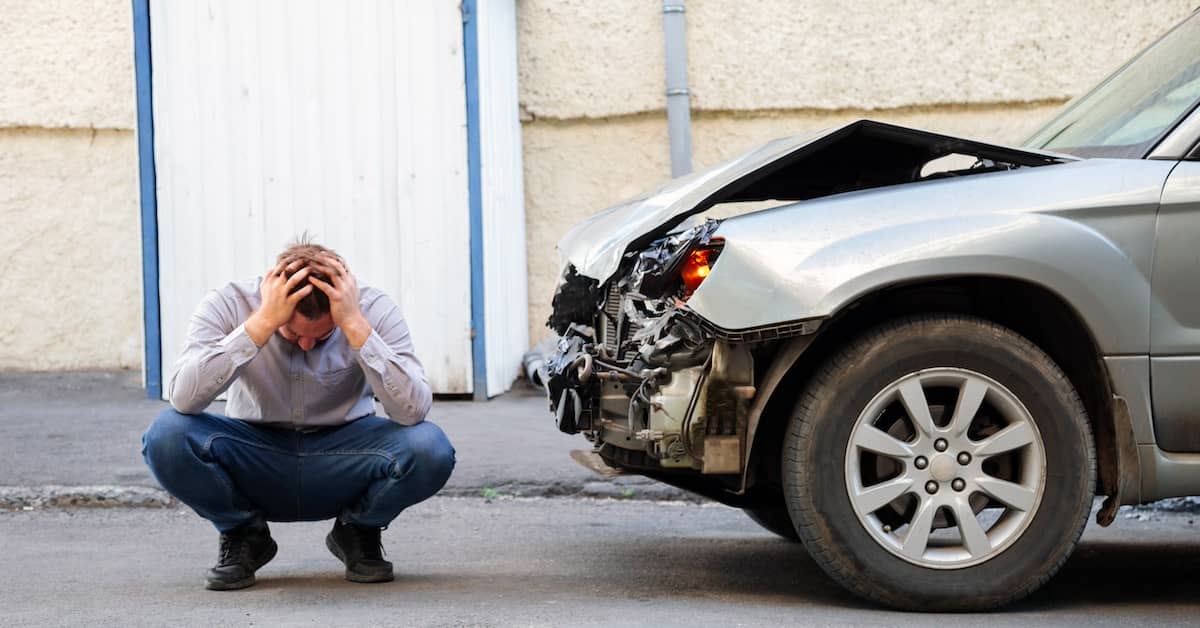
Before you can fight for your rights after being injured in a car accident, you first need to understand your rights. Having represented hundreds of West Virginians injured in car accidents, Colombo Law is here to help.
Here, we are going to review what you need to know if you have been injured in a car accident, including the right to sue, what you may be able to recover in compensation, and how much time you have to start the process.
To review your situation over a FREE consultation, reach out to the car accident attorneys at Colombo Law today by calling us at 304-599-4229. Our car accident lawyers serve clients in Morgantown and throughout West Virginia.
The Right to Sue
The most important thing to know after a car accident is, if you were injured through no fault of your own, you have the right to sue for damages. This means the defendant (usually another motorist) may be liable for all of the costs associated with the accident, along with the pain and suffering and other non-economic damages you experience.
Both drivers and passengers can pursue compensation if they are injured in a car accident.
Drivers
Motorists have a responsibility to each other and their passengers to drive safely, including following the rules of the road and avoiding reckless behavior behind the wheel. When a driver fails to uphold this responsibility and causes an accident, they may be held liable for the resulting damages.
Drivers may be able to recover compensation for damages even if they were partially at fault for the accident. West Virginia has a modified comparative fault standard, which means that injured plaintiffs may recover compensation provided they are 50% or less responsible for an accident.
“In any action based on tort or any other legal theory seeking damages for personal injury, property damage, or wrongful death, recovery shall be predicated upon principles of comparative fault and the liability of each person, including plaintiffs, defendants and nonparties who proximately caused the damages, shall be allocated to each applicable person in direct proportion to that person’s percentage of fault.”
– West Virginia Code §55-7-13a
This means that the amount of compensation the claimant may recover is determined by the percentage of fault they share for the accident. For example, if another driver’s distracted driving caused the accident but it is determined that you failed to yield, it may be decided that you were 30% responsible. As such, you would only be able to recover 70% of your total damages.
Passengers
The right to sue is not limited to drivers. Passengers likewise have the right to pursue compensation for damages they sustain. (Though it is less likely that a passenger will need to be concerned about comparative fault, since they typically do not contribute to the cause of an accident.)
As a passenger, you may also be able to file a claim against the driver of the car you were in if the driver was responsible for the accident. For example, if an Uber driver causes a collision with another vehicle and it results in injury to a passenger, the passenger may be able to pursue compensation against the driver and/or Uber for their losses.
What Can I Be Compensated For?
Compensatory damages are organized into two categories: economic and non-economic.
Economic damages are damages that result in direct or indirect financial loss, such as:
- Medical bills
- Lost wages
- Rehabilitation expenses
- Damage to personal property
- Modifications to home or vehicle
Non-economic damages compensate the victim for physical and/or psychological pain. Some examples include:
- Pain and suffering
- Loss of consortium
- Disability
- Scarring and disfigurement
- Loss of enjoyment of life
There is a third type of loss you may be compensated for called punitive damages, though these are not compensatory damages. Instead, they are used to punish a defendant who acts with “actual malice toward the plaintiff or a conscious, reckless and outrageous indifference to the health, safety and welfare of others” (see West Virginia Code § 55-7-29) and deter others from the same behavior.
Punitive damages awards are not common. However, it is worth determining whether you are eligible and weighing the risk of going to trial against the potential to recover maximum compensation.
How Long Do I Have to Sue for a Car Accident?
If you have been injured in a car accident, you should begin the process of making a claim as soon as possible. You do not have an unlimited amount of time to file a lawsuit due to West Virginia’s statute of limitations laws, which only allow car accident victims to pursue compensation within two years of the date of the accident.
There are some exceptions to this rule, such as when the accident victim is a minor or is suffering from a legal disability that makes it impossible for them to pursue a claim. However, you should not rely on an exception to prolong the time you have to take legal action. Evidence can quickly be lost and witnesses’ memories fade, which can make it more difficult to prove negligence.
The sooner you get started, the easier it will be for you and your attorneys to prepare a strong case and pursue maximum compensation for your losses.
Read More: What to Do After an Accident in West Virginia
Injured in a Car Accident? Contact Colombo Law Today
Managing the aftereffects of a car accident can be a stressful, painful time. Beyond trying to recover physically and psychologically from the accident, you may also be trying to determine what your legal options are.
You do not have to face these decisions alone. At Colombo Law, we are here to answer your questions and fight for your right to maximum compensation so you can focus on what matters most: getting better. With our No Fee Promise, you don’t have to pay unless we obtain a favorable result on your behalf.
If you have been injured in a car accident in West Virginia, don’t hesitate to speak to an experienced attorney ASAP. Contact Colombo Law in Morgantown for a FREE case review.










